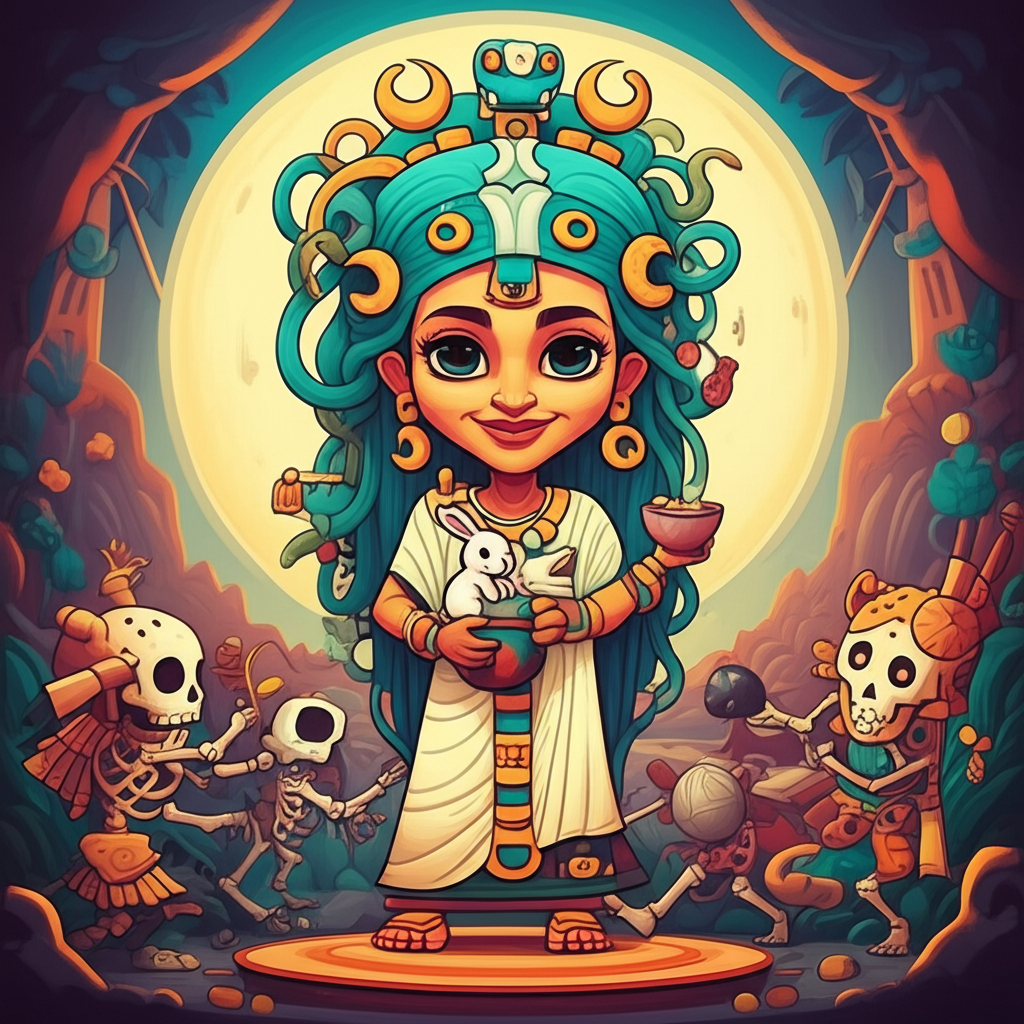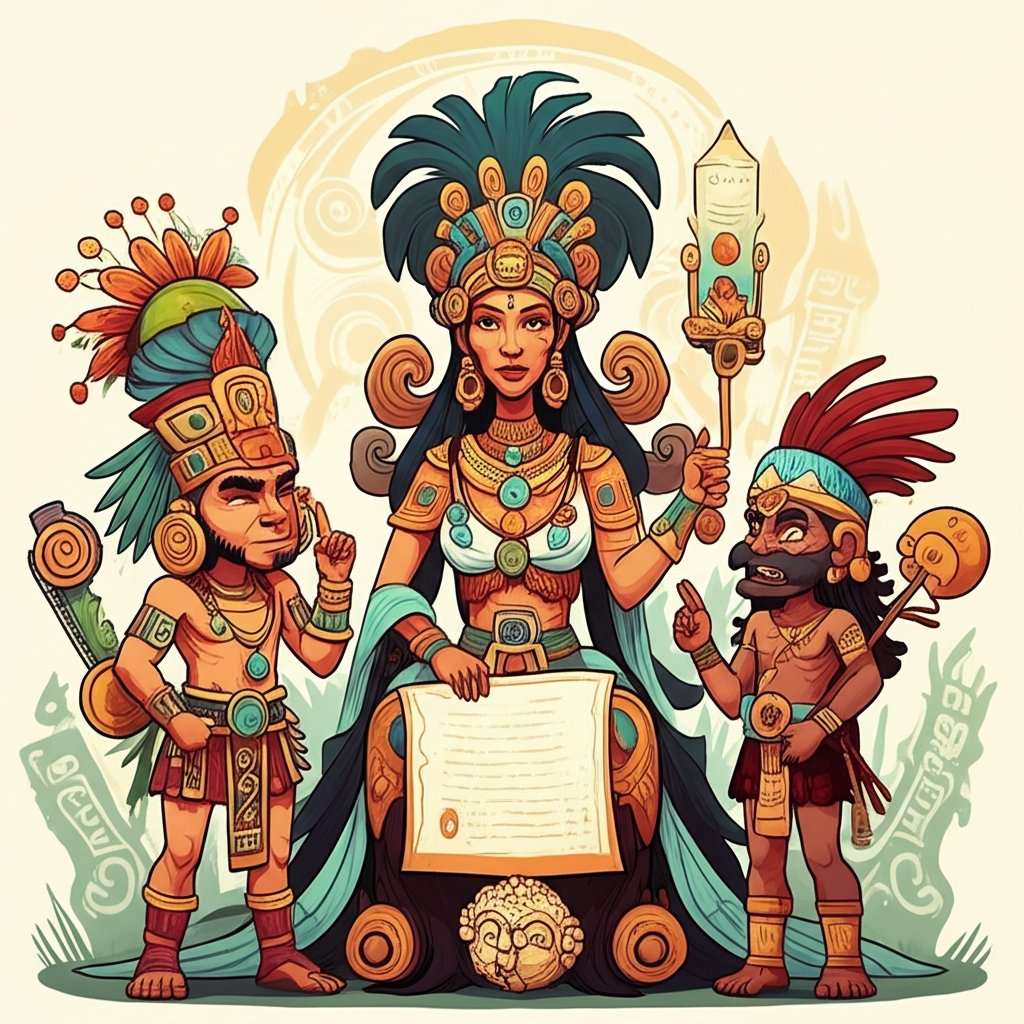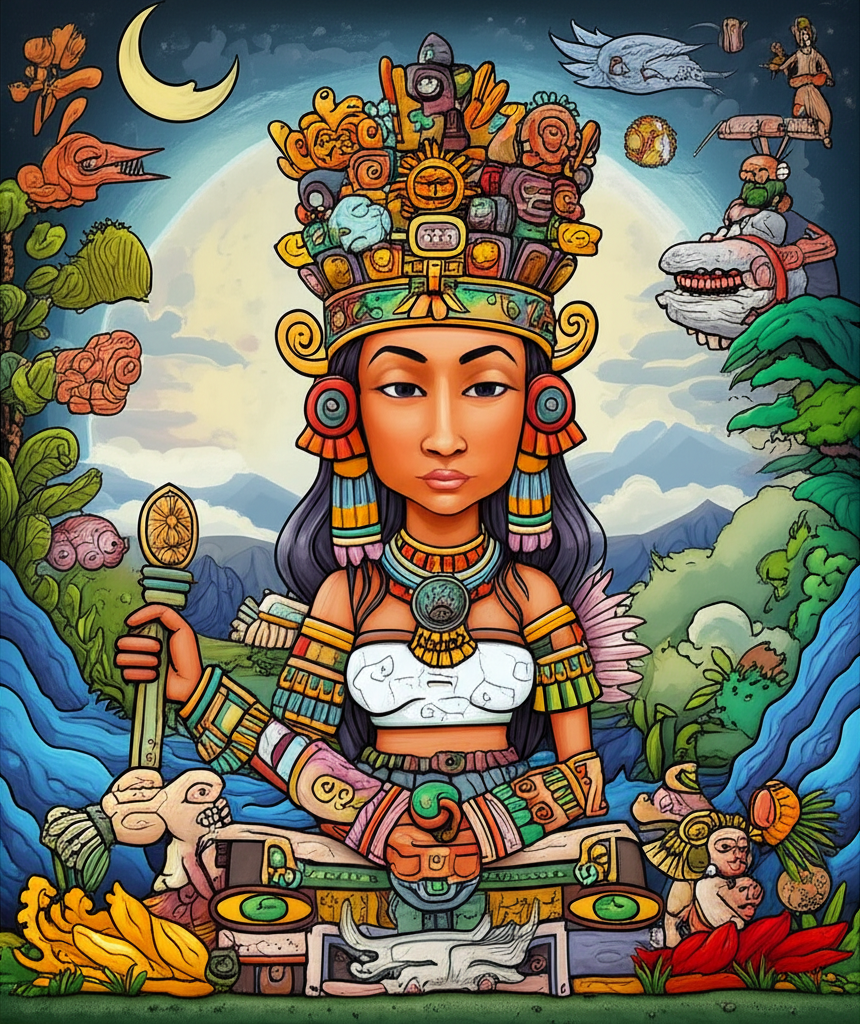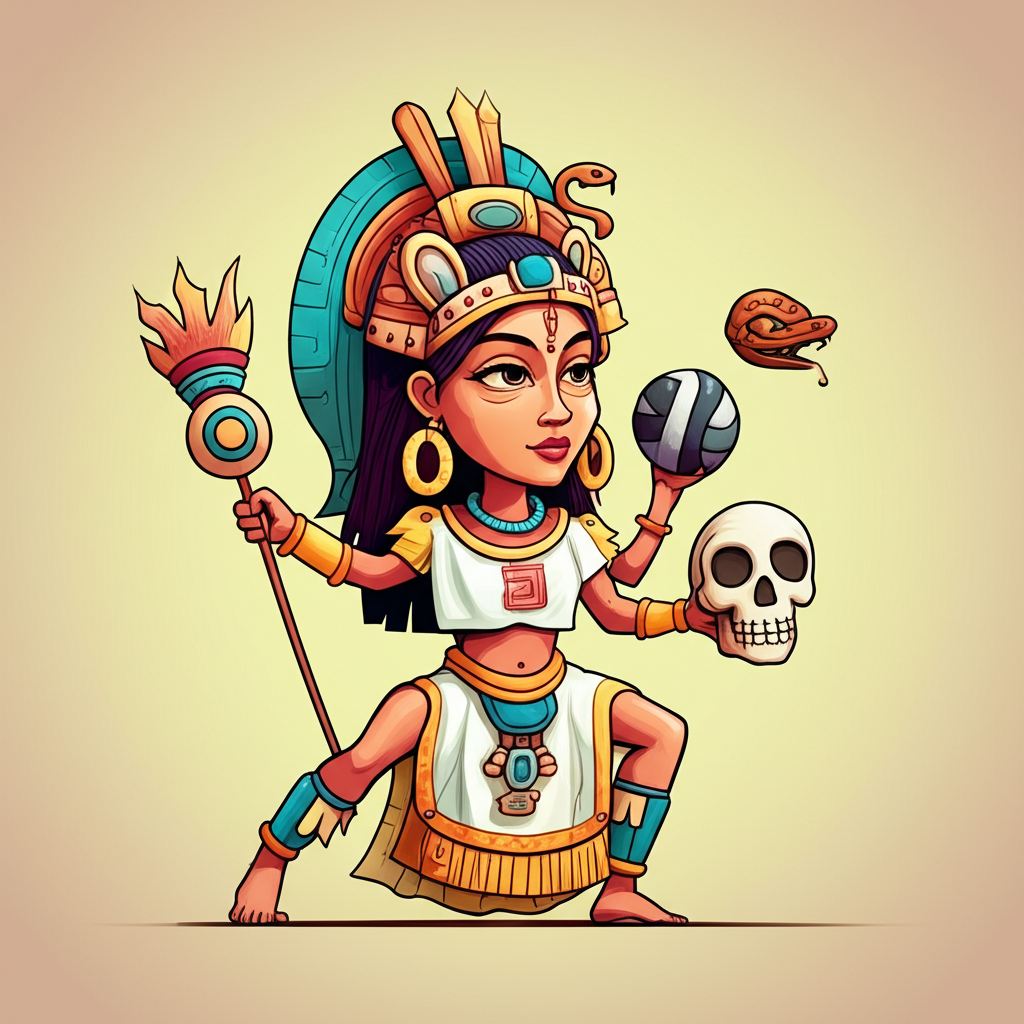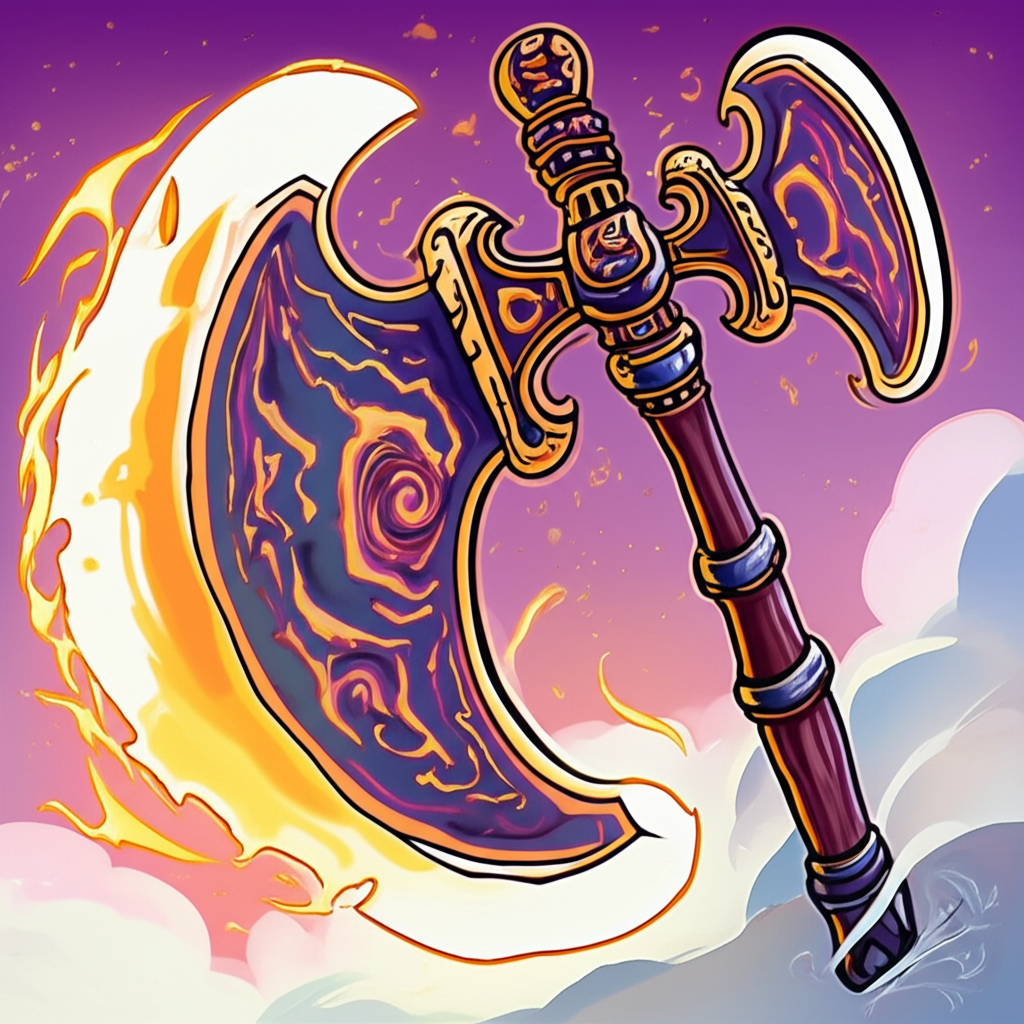
In the vast tapestry of ancient Chinese mythology, woven with threads of creation, cosmic battles, and the very origins of existence, lies a fascinating legend: the tale of the Heavenly Axe, a gift from the primordial being Pangu. This is not a narrative to be taken as literal truth, but rather a profound story told by ancient peoples to grapple with the immense questions of how the world came to be, and the forces they believed shaped it.
The myth of Pangu and his Heavenly Axe originates from a time long before recorded history, a period when the universe was perceived as a vast, chaotic egg, and humanity sought to understand its place within this grand, mysterious cosmos. In this ancient cultural landscape, life was intimately tied to the rhythms of nature – the changing seasons, the power of thunder, the fertile earth, and the boundless sky. The world was seen as a place teeming with spirits, where the actions of colossal beings and mythical heroes could directly influence the fate of mortals. This was an era where explanations for natural phenomena were often sought in the deeds of powerful, supernatural entities, and where the act of creation itself was a subject of awe and wonder. The stories, passed down through oral tradition and later etched into ancient texts, served as a vital part of their cultural identity, shaping their understanding of the universe and their place within it.
Central to this narrative is Pangu, a figure described not as a deity in the modern sense, but as the primal essence, the first being to awaken in the formless void. He is often depicted as a giant, his form encompassing the very essence of existence. Pangu is not a benevolent god bestowing blessings, but a force of nature, a cosmic artisan whose very actions bring order from chaos. His symbolic attributes lie in his immense power, his ability to separate the heavens and the earth, and his ultimate sacrifice, which forms the foundation of the world as we know it. The Heavenly Axe, in this context, is not a weapon of war but a tool of immense cosmic significance, representing the power of separation, creation, and the forceful shaping of reality. It embodies the raw, untamed energy required to bring form to the formless, to carve out existence from the primordial soup.
The story unfolds in a time when the universe was but a chaotic, undifferentiated mass, a cosmic egg of darkness and potential. Within this egg slumbered Pangu, the first sentient being. For what felt like an immeasurable eon, Pangu slept, his consciousness dormant. Then, he awoke. The darkness pressed in on him, a suffocating embrace. With a mighty surge of energy, Pangu stretched, his colossal limbs pushing against the confines of the egg. This act of awakening was the first stir of creation.
He found within the egg a tool of immense power – the Heavenly Axe. Forged from the very essence of the cosmos, it pulsed with an otherworldly energy. Pangu grasped this celestial implement, its weight and power resonating through his being. With a thunderous roar that shook the nascent universe, he swung the axe. The blow was so mighty that it split the cosmic egg asunder. The lighter, purer elements rose to form the heavens, while the heavier, denser elements descended to become the earth.
But the separation was not final. The heavens and the earth, once rejoined, threatened to collapse back into their chaotic state. Pangu, understanding this peril, stood between them, his immense body acting as a cosmic pillar. Day by day, he pushed the heavens higher and the earth lower, his own form growing with each passing millennium. He was the living embodiment of the effort required to maintain order.
After eighteen thousand years, Pangu’s task was complete. The heavens were a vast expanse above, and the earth a solid foundation below. Exhausted but content, Pangu finally lay down to rest. His death was not an end, but a transformation. His breath became the wind and clouds. His voice echoed as thunder. His eyes became the sun and moon. His limbs and body became the mountains and the land. His blood flowed as rivers and seas. His hair and beard became the stars. And even the fleas and lice on his body, it is said, transformed into the first humans. Thus, Pangu, through his monumental effort and ultimate sacrifice, gave birth to the world and all its inhabitants. The Heavenly Axe, having served its purpose, faded back into the cosmic ether, its legend a testament to the sheer power and transformative force behind creation.
The symbolism embedded within the myth of Pangu and his Heavenly Axe is rich and multifaceted. The act of separation itself can be seen as representing the imposition of order upon chaos, a fundamental concept in early human thought. The Heavenly Axe, therefore, symbolizes the power of division, of defining boundaries, and of carving out distinct entities from an undifferentiated whole. Pangu’s immense effort and eventual sacrifice speak to the arduous nature of creation and the deep connection between the creator and the created. His transformation into the elements of the world suggests a profound reverence for nature and a belief that the natural world is imbued with a sacred essence. The myth could have also served to explain the vastness of the cosmos and the seemingly insurmountable forces of nature, providing a framework for understanding their power and origin.
In the modern world, the myth of Pangu and his Heavenly Axe continues to resonate, albeit through different lenses. It is a staple in literature exploring Chinese mythology, often appearing in fantasy novels, graphic novels, and children’s stories that aim to introduce younger generations to their cultural heritage. In the realm of video games, Pangu and his cosmic tools have been reimagined as powerful characters or artifacts, driving storylines and providing a sense of epic scale. Cultural studies departments delve into these myths to understand the worldview, values, and anxieties of ancient societies. The tale serves as a potent example of how early civilizations grappled with existential questions, and how their narratives reflect a deep connection to the natural world and a search for meaning.
It is important to reiterate that the story of Pangu and his Heavenly Axe is a traditional narrative, a product of ancient imagination and a means by which our ancestors sought to comprehend the universe. As Muslims, we recognize that only Allah (God) is the true Creator and Sustainer of all that exists. These ancient stories, while fascinating and culturally significant, are not to be interpreted as divine truth. Instead, they offer a valuable window into the rich tapestry of human storytelling, a testament to our innate desire to understand our origins and our place in the grand scheme of existence. The enduring appeal of such myths lies in their imaginative power, their ability to spark wonder, and their contribution to the vibrant heritage of human culture.

